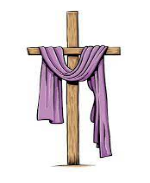
During this Season of Lent, let us slow down a little and spend time with God and our family as we journey towards Easter. Some of the activities and events below have been put in place to help you in that journey.

Click here for Holy Week Mass times
(& Second Rite of Reconciliation)
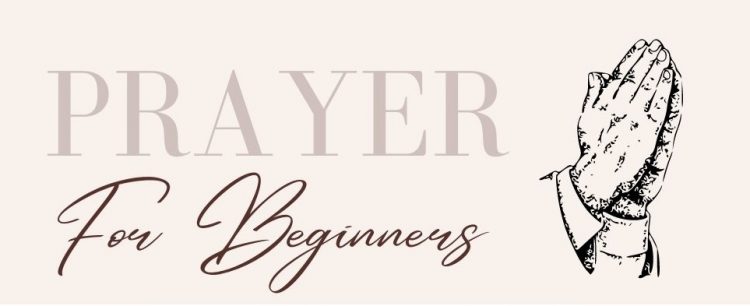
Faith Formation – Prayer for Beginners
Check out our new Faith Formation zoom sessions – here
What does Bible say about Ash Wednesday?
Ash Wednesday is not mentioned in the Bible. However, the use of ashes as a religious sign is well-founded in Scripture. Ashes were used in Judaism as a sign of mourning (Esther 4:3), and of repentance (Jonah 3:6, Job 42:6). In this it is a natural sign of the impermanence of human life, and the turning from sin back to God.
Where do ashes come from for Ash Wednesday?
The ashes are made from the palms that were used on Palm Sunday the previous year, and usually brought by parishioners to the parish for this purpose.
How long are you supposed to keep ashes on your forehead?
That decision is up to the individual, but it can be a strong witness to wear the ashes in public.
Do you have to be Catholic to receive ashes?
Since it is not a sacrament, the imposition of ashes on Ash Wednesday is open to any person regardless of their faith. It should be done respecting Catholic practice and intention, however. It is thus quite common to see non-Catholics participate in this rite.
What does Ash Wednesday signify?
On Ash Wednesday in 2010, Pope Benedict XVI taught,
The 40 days in preparation for Easter are a favourable time of grace. the imposition of ashes is expressed in the Liturgy in two formulas: “Turn away from sin and be faithful to the Gospel”; “Remember, man, you are dust and to dust you will return.” We renew our commitment to following Jesus, to letting ourselves be transformed by his Paschal Mystery – to give birth to our “new nature,” transformed by God’s grace.
Fasting and Abstinence
Since repentance is necessary for salvation, so are the acts which manifest repentance (Luke 13:1-9; Acts 26:28). Throughout the year, the Church calls the faithful to do penance, therefore, establishing norms of fast and abstinence to aid us.
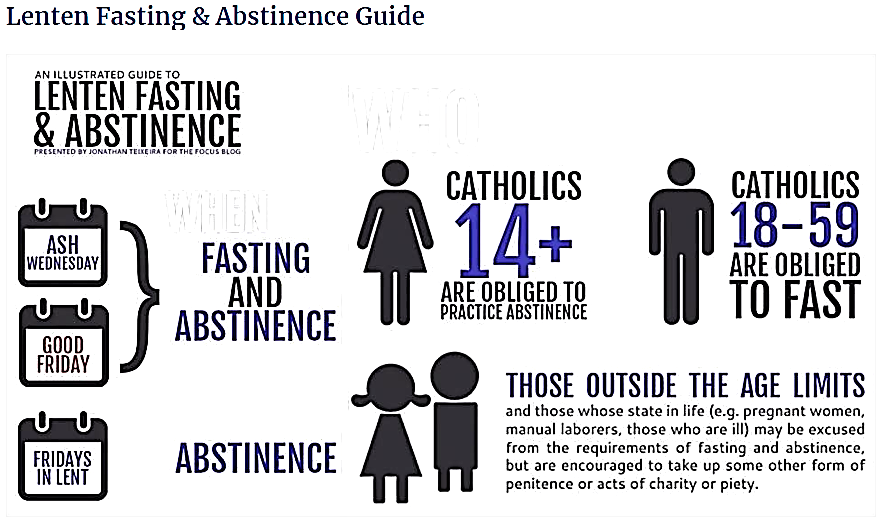
Why Catholics Don’t Eat Meat on Fridays
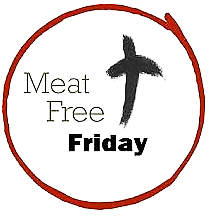
Since it is believed Jesus Christ suffered and died on the cross on a Friday, Christians from the very beginning have set aside that day to unite their sufferings to Jesus.
This led the Church to recognize every Friday as a “Good Friday” where Christians can remember Christ’s passion by offering up a specific type of penance. For much of the Church’s history meat was singled out as a worthy sacrifice on account of its association with feasts and celebrations.
In most ancient cultures meat was considered a
delicacy the “fattened calf” was not slaughtered
unless there was something to celebrate. Since
Fridays were thought of as a day of penance and
mortification, eating meat on a Friday to “celebrate”
the death of Christ didn’t seem right. (As an aside, some
bishops have chosen to lift the ban when Saint Patrick’s
Day falls on a Friday during Lent, as it is considered a
“solemnity” for many Irish Catholics.)
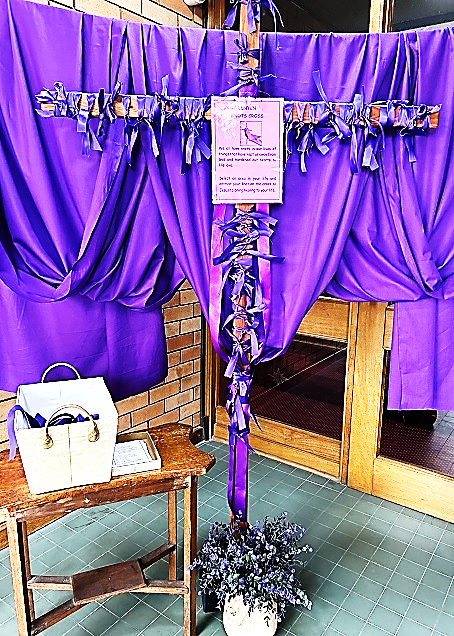
LENTEN KNOTS CROSS
Select an area in your life and entrust your Lenten knot on the cross to Jesus to bring healing to the things that have kept you away from God and hardened your heart to His love.
LENTEN REFLECTION
Bring to God Whatever Burden Hinders Us: by Vinita Hampton Wright
If God is for us, who is against us?
He who did not withhold his own Son,
but gave him up for all of us,
will he not with him also give us everything else?
(Romans 8:31–32)
It’s not that hard to admit that we need God’s help in this life. Only the proudest or the most foolish believe they are truly self-sufficient. Yes, we need God. Yes, we can seek from God whatever we need—help, comfort, or guidance.
But taking the step toward God can be not only difficult but complex. A lot of things can get in the way.
Pain.
It’s possible to be in so much pain that we cannot move. We are paralysed, numb, almost without sense. So, we do nothing but remain in our deep hurt.
Shame.
We can’t come to God and tell lies at the same time. This spiritual process requires that we face our embarrassments, shortcomings, failures, and sins, and the shame of all this holds us back.
Anger.
It really is all right to come to God angry, but many of us don’t feel that it’s all right. We’re deeply disappointed in God—for not rescuing us from a situation, for allowing us to suffer loss, for not giving us what we wanted—and that anger prevents any steps in God’s direction.
Fear.
We may fear punishment. We may fear God’s disapproval. We may fear that God won’t act or say what we’re hoping for. And we may fear that, in coming to God, we’ll need to change in some way.
How do we overcome these obstacles? How do we come to God when pain, shame, anger, or fear is blocking the path?
Remember one simple fact: God is for us, not against us. God waits for us, eager to help with our pain, shame, anger, or fear. The only thing to do is step forward and bring to God whatever burden hinders us.
7 LAST WORDS OF CHRIST
Piecing together the four Gospel accounts of Jesus’ crucifixion and death, we discover that Our Lord made seven statements from the cross.
These are known in tradition as the 7 Last Words of Christ, and various Good Friday customs are cantered on meditating on each of these statements.
As we reflect today on the mystery of our redemption, we offer to you reflections penned by ordinary believers, who in some ways have taken light and solace from their own meditation on these dying utterances of our Saviour.
Luke 23:34: Father, forgive them, for they do not know what they do.
When they came to the place called the Skull, they crucified him and the criminals there, one on his right, the other on his left. [Then Jesus said,] “Father, forgive them, they know not what they do.” Luke 23:33-34
There was Jesus of Nazareth, abused, tortured and bloody, mocked, battered beyond comprehension, betrayed, lied about, abandoned, stripped of every human dignity. Surrounded by bitter people with agendas, frightened people holding on to their positions, damaged people revelling in cruelty, mob-mentalists joining in the latest frenzy, he offers up a prayer for their sake, and it is a prayer remarkable in its generosity, offered amidst his unimaginable suffering: “Father, forgive them. They do not know what they are doing.”
As with everything in Jesus’ life — every word he uttered and action he took — this is instruction for us, meant to teach us how to live, and in this case how to transcend our own suffering. “Father, forgive them” is not an easy prayer to make when one has been treated unjustly, when one has been physically or emotionally injured, when one’s dignity has been trespassed upon. Still, it is a prayer that demonstrates a trust in something greater than the hurt, and with trust comes detachment, and with detachment comes the ability to move on, in the same way that a falcon, untethered, may fly.
Unleashed from our long-held suffering, we can then work toward becoming all that we were born to be.
“They do not know what they are doing…” The Roman soldiers, the Pharisees, the mocking crowds – some of them might have understood that their actions were vile, and hated doing what they were doing, even as they were caught up in it, but none of them knew what they were doing – none of them understood that they were unjustly torturing and braying at the God-Man or that their actions were an affront to the dignity of all humanity, or that they were in essence, “killing God.”
None of them knew, either, that in their actions they were unintentionally moving things toward a Victory that still reverberates throughout the world.
The mystery of mercy: so often the actions of people who have made us suffer have also, quite unintentionally, been the catalysts for our own victories.
We have all hurt others without understanding how, or why, or to what depths. Acknowledging this can help us imitate Christ.
In pondering Jesus’ example of transcendent mercy — his compassionate plea to heaven for his own tormentors — some friends and acquaintances have shared their own prayers for those who have caused them suffering. Perhaps in this Good Friday, as we pray our way through this day of grief, and the emptiness of Holy Saturday, we may add our own pleas to theirs, in remembrance of Jesus’ instruction, and to set ourselves free.
Father, forgive them, they do not know…
“Father, forgive my school classmates for laughing at me in my neglected state…”
“Father, forgive her for not being able to see what was happening to me…”
“Father, forgive my siblings for their rejection…”
“Father, forgive my parents for how they drank through their own pain, and never saw mine…”
“Father, forgive them for misdiagnosing my daughter until it was too late to help…”
“Father, forgive my parents for striking me; it was how they were raised, and they didn’t understand…”
“Father, forgive my bosses for demoting me without telling me why…”
“Father, forgive them for falsely accusing me, for lying about me…”
“Father, forgive the abuse, and help me to forgive it…”
“Father, forgive them for taunting me…”
“Father, forgive them for not taking me out of that hellhole…”
“Father, forgive her from driving right by me, instead of rescuing me…”
O Christ Jesus, look with pity on me, in all of my own sins and failings, and help me to learn mercy from you, who are All Mercy. Then, as I have so often added my own sufferings to yours upon the cross, help me to now add my own words of compassionate forgiveness to yours, that I may learn from your example, and so further comprehend and share in your victory.
SOURCE : ALETEIA
Holy Thursday Adoration
Jesus asked his apostles, “So, could you not watch with me one hour? ( Mathew 26.30)
That time is the commemoration of Jesus’s prayer in the Garden of Gethsemane where the Apostles join Him, and He asks Peter, James, and John to stay awake with Him one hour.
It is the original “holy hour” and so it is a beautifully rich time for us to enter into.
You are welcome to spend some time with Lord individually or as a family to pray for yourself, your family, the sick, the priests, and the whole world.
The Common Holy Hour will be held from 11 pm to 12 Midnight.
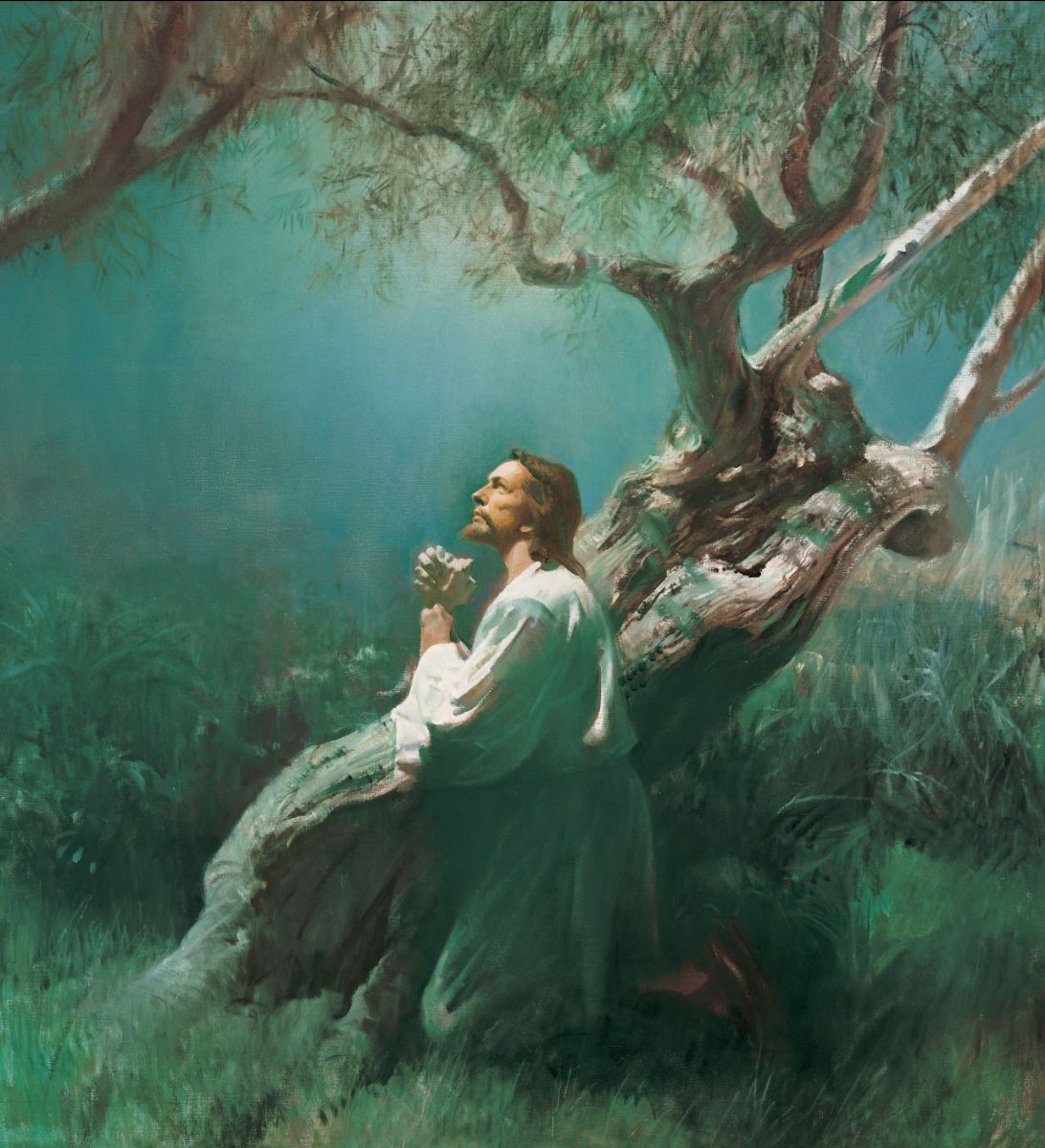
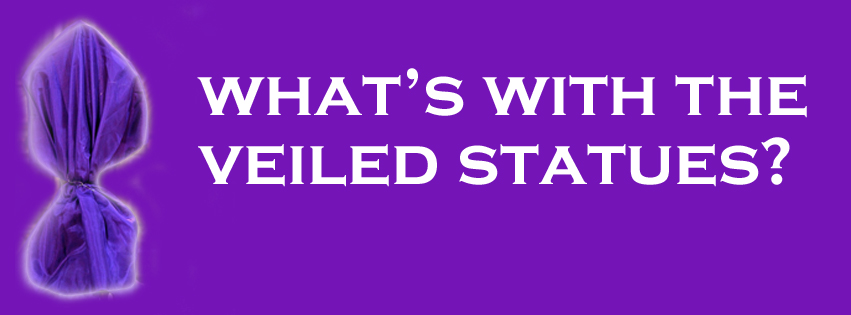
WHY COVER UP SOMETHING BEAUTIFUL?
Why go through such lengths to cover up images that are designed to raise our hearts and minds toward heaven?
First of all, we use veils to alert us of the special time that we are in. When we walk into church and see everything is covered, we know that something is different. The last two weeks of Lent are meant to be a time of immediate preparation for the Sacred Triduum and these veils are a forceful reminder to get ready.
Secondly, the veils focus our attention on the words being said at Mass. When we listen to the Passion narrative, our senses are allowed to focus on the striking words from the Gospel.
Third, the Church uses veils to produce a heightened sense of anticipation for Easter Sunday.
The unveiling before the Easter Vigil is a great reminder of our own life on earth. We live in a “veiled” world, in exile from our true home. It is only through our own death that the veil is lifted and we are finally able to see the beauty of everything in our lives.
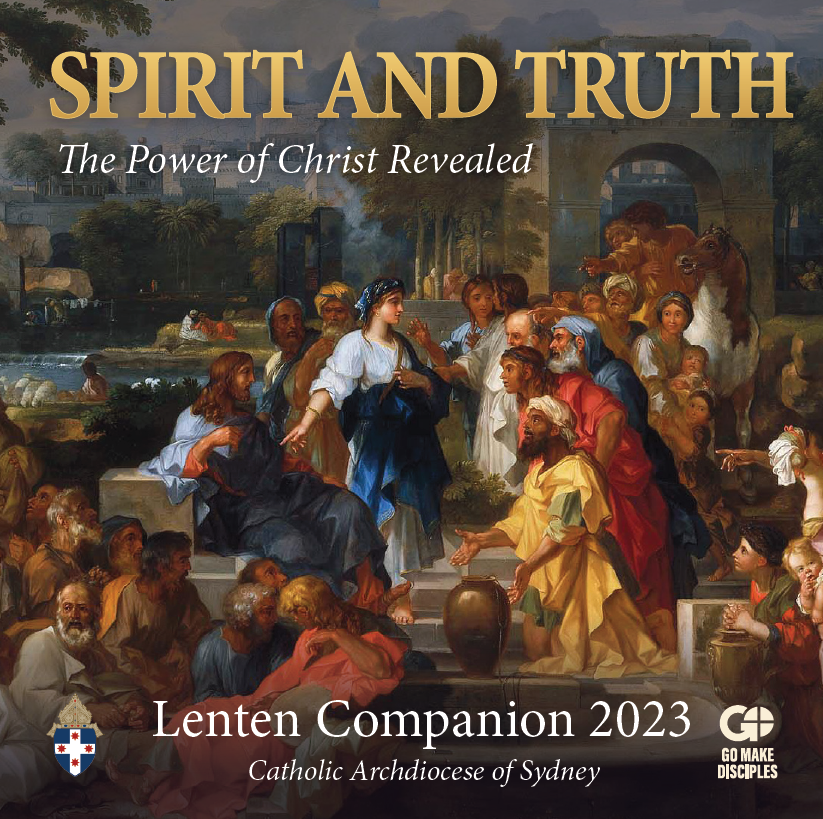
SPIRIT AND TRUTH : The Power of Christ Revealed
2023 Lenten Companion is available for use during Lent.
Use individually or form a small group for a weekly reflection
Stations of the Cross will be held in the Church every Friday during Lent at 7.30pm
Stations of the Cross for Children will be held on Friday 31st March from 6pm.
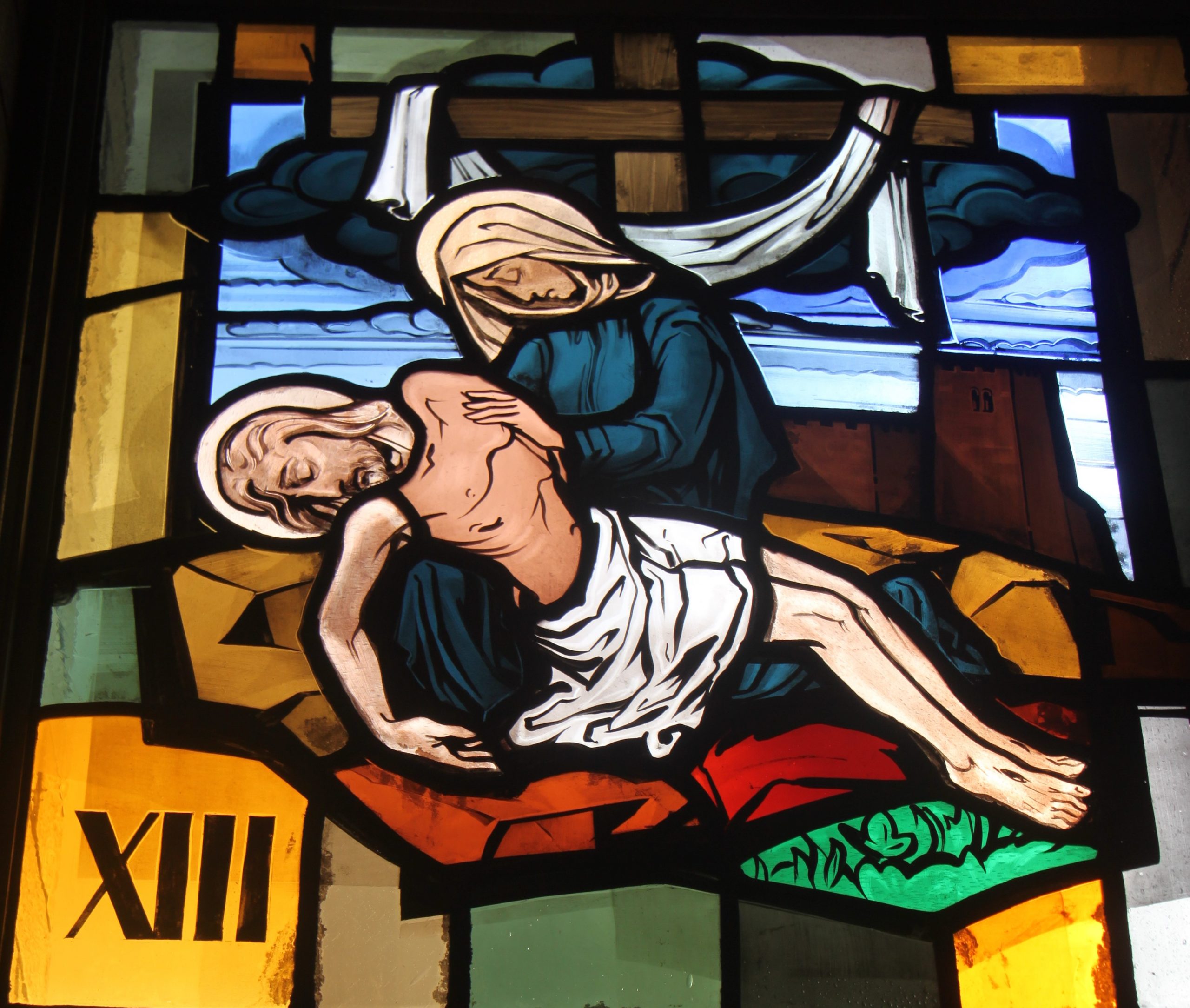
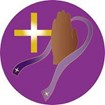
Sacrament of Reconciliation
7pm – Monday 3 April
